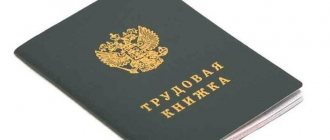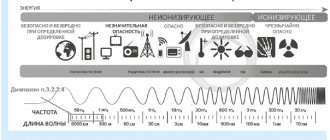Law on payment of pensions after the death of a pensioner
Pension legislation provides that disabled relatives have the opportunity to receive the pensioner’s insurance savings that were not issued to him due to death. The circle of persons and conditions for receiving funds are provided for by Law No. 400-FZ of December 28, 2013.
Pension benefits not received for the current month due to death are paid to his relatives living with him at the time of his death. Such persons include:
- spouse, parents (those who have reached the age of 60 - men and 55 - women);
- children, grandchildren (up to 18);
- brothers, sisters (up to 18);
- grandmothers, grandfathers (if they are over 60 for men and 55 for women. In case of disability, age does not matter).
The funds allocated by law are divided equally among the relatives claiming them. To receive money, you must contact the regional office of the Pension Fund of the Russian Federation no later than 6 months from the date of the pensioner’s death.
If no one applies within six months, the amount not claimed by the relatives remains in the state budget. It can only be obtained after filing an application with the district court.
In addition to the money that the pensioner should have received, but was unable to do so due to death, close relatives can count on compensation in connection with the loss of a breadwinner. The specifics of the assignment and calculation of this payment are regulated by Law No. 400-FZ of December 28, 2013.
How to receive your spouse's accrued and paid pension
The accrued amounts of the insurance pension due to the pensioner in the current month and remaining uncollected due to his death are paid to members of his family who lived with him on the day of his death. However, they must apply for these amounts within six months from the date of death of the pensioner. When several family members apply for the specified pension amounts, the amounts due to them are divided equally between them (Part 3 of Article 26 of Law No. 400-FZ).
In the absence of these persons or if they do not submit demands for payment of the unreceived pension within the specified period, the corresponding amounts are inherited on a general basis (Part 4, Article 26 of Law No. 400-FZ; Clause 3, Article 1183 of the Civil Code of the Russian Federation).
As for pension supplements, we note that depending on their type, there are different procedures for their payment upon the death of a pensioner. Some additional payments are not inherited and are not paid, while others are paid in the same manner as the unpaid pension. In this regard, it is necessary to clarify with the body paying the supplement the procedure and conditions for receiving it after the death of the pensioner.
The procedure for applying for a pension after the death of a pensioner
If you are applying for a pension that a pensioner has not received, we recommend that you adhere to the following algorithm.
Prepare the necessary documents - Step 1.
The legislation does not provide an exhaustive list of documents that will be required to receive a pension. However, based on current practice, the following will most likely be required (Letter of the Pension Fund of the Russian Federation dated March 19, 2002 No. LCH-06-27/2446):
- an application for payment of the pension amount accrued and not received by the pensioner;
- passport;
- death certificate of the pensioner;
- documents confirming your relationship with the deceased (for example, a marriage or birth certificate);
- documents confirming cohabitation with the deceased on the day of his death (for example, a passport extract, a copy of your certificate of registration at the place of residence or place of stay).
If you want to receive the pension of a deceased pensioner by bank transfer, additionally prepare documents confirming that you have a bank account, its details and the details of the recipient bank.
Submit documents to the territorial office of the Pension Fund of the Russian Federation - Step 2.
The documents must be submitted to the territorial body of the Pension Fund of the Russian Federation at the place where the deceased pensioner received the pension. The law does not directly determine the period within which the territorial body of the Pension Fund of the Russian Federation is obliged to review documents. Check with the officials of the territorial body of the Pension Fund of the Russian Federation when you will be given (transferred) a pension not received by a deceased pensioner.
The territorial body of the Pension Fund issues a certificate of the amount of the pension not received by the pensioner to his possible heirs based on their application and a request from a notary within three days after receiving the application (clause 45 of the Rules for payment of pensions, approved by Order of the Ministry of Labor of Russia dated November 17, 2014 No. 885n; clause 22 of the Administrative Regulations, approved by Order of the Ministry of Labor of Russia dated November 1, 2016 No. 600n; Letter of the Pension Fund of the Russian Federation dated April 1, 2016 No. LCH-25-19/4494).
Payment of a funded pension in the event of the death of a citizen
If a citizen dies before he is assigned a funded pension or a fixed-term pension payment, his pension savings, formed through the payment of DSA, will be paid to his successors. The savings of those pensioners who applied for a pension, but died without having time to spend them, go to pensions for other pensioners (with the exception of the balance of pension savings not paid to the deceased in the form of an urgent pension payment) (Article 16 of Law No. 56-FZ; Part 6 Article 7 of Law No. 424-FZ; Clause 4, Article 2, Part 6, 7, Article 5 of Law No. 360-FZ).
Survivor's pension
In some cases, a widowed spouse may not only transfer to the deceased’s pension, but also receive an additional survivor’s pension. This is possible in the following situation:
- when the spouse died during military service as a result of conscription or as a result of a military injury received in the service;
- when the deceased spouse took part in the liquidation of the disaster at the Chernobyl nuclear power plant and its consequences;
- when the deceased spouse worked on space tests.
In these situations, the surviving spouse has the right to receive two categories of payments: a survivor's pension, regardless of age and ability to work, as well as his own pension.
Military personnel or WWII veteran
For relatives of military personnel or WWII participants, there is a law that also provides for the possibility of receiving a pension after the death of the breadwinner (Federal Law No. 4468-1).
Immediate relatives are entitled to unpaid current compensation of a retired military member. Financial resources are transferred to the spouse of a deceased military pensioner or former WWII participant, as well as his children, brothers, sisters and grandchildren until they reach adulthood.
In certain cases, funds may be paid even if the recipient is able to work but is caring for the breadwinner’s young children.
Officially employed person
If the pensioner was working at the time of death and his employment relationship was official, then relatives can count on money regardless of this fact.
The rules for assigning and receiving payments are similar to the generally accepted procedure and are provided for by law. Disabled family members will be able to receive one-time compensation not received by the deceased pensioner, and also apply to the Pension Fund of the Russian Federation with a written application for the appointment of monthly support for the loss of a breadwinner.
Non-working person
The fact of employment does not affect the possibility of receiving pension payments after the retirement of the pensioner. If the deceased was assigned an insurance or military pension, and he did not work anywhere, then close relatives can count on receiving funds.
Persons with disabilities
In accordance with the law, there is no possibility of receiving a monthly pension after the death of a disabled person.
Accrual stops from the next month after the death of the pensioner or his announcement as missing.
Thus, relatives of a pensioner can only claim a month’s pension if it was not received before his death.
Military pension
In accordance with Art. 43 of the Law on pensions for citizens who served in military service, as well as sub. “a” clause 9 of the Resolution of the Council of Ministers - Government of the Russian Federation of September 22, 1993 No. 941, the monetary allowance taken into account when calculating pensions for military personnel discharged from military service (with the exception of certain categories) includes:
- salary for the last full-time military position;
- salary according to the military rank assigned to the day of dismissal;
- percentage bonus for length of service calculated from these salaries.
The above salaries are taken into account without increasing them for service in remote, high mountain areas and in other special conditions.
Thus, the basis for determining the size of a survivor's pension for military families is the monetary allowance received by military personnel on the day of death.
Who is eligible for a military pension?
Regardless of being a dependent of a citizen who served in military service, or a pensioner from among citizens discharged from military service, the following categories of citizens, in particular, have the right to a survivor's pension:
- disabled children (according to Part 2 of Article 29 of the Law on Pensions for Persons Who Served in Military Service), as well as student children of citizens who served in military service and who died as a result of radiation sickness, other radiation-induced disease or injury (injury) that are associated with liquidation of the consequences of the disaster at the Chernobyl nuclear power plant, radiation accidents at other nuclear facilities for civil or military purposes, with participation in nuclear weapons tests and exercises with their use, work with nuclear installations and radioactive substances, as well as student children of deceased pensioners from among citizens dismissed with military service, who were disabled due to the specified reasons (regardless of the cause of death of the pensioner), until graduation from a secondary or higher educational institution, but no more than until they reach the age of 23;
- disabled parents and spouses if they lose their source of livelihood after the death of the breadwinner (Part 2 of Article 29 of the Law on Pensions for Persons Who Have Served in Military Service). At the same time, those who have lost their source of livelihood include parents or a spouse whose entire available income or the share of income attributable to each of them is below the minimum pension amount provided for in paragraph “b” of Art. 37 of the Law on pension provision for persons who served in military service, per one able-bodied family member. The fact of loss of a source of livelihood by disabled parents and spouses who were not dependent on a citizen who served in military service or a pensioner from among citizens discharged from military service is determined on the day of their application for a pension in each specific case based on their actual financial situation. Disabled parents or spouses whose children are exempted by a court decision from the obligation to provide them with financial assistance are considered to have lost their source of livelihood if their income or share of income is below the minimum pension. The fact of loss of livelihood by disabled parents and the spouse of a deceased (deceased) citizen who served in military service, or a pensioner from among citizens dismissed from military service who were not dependent on him, is determined by familiarizing himself with the financial situation of the family of the deceased breadwinner by representatives of the district military commissariat and housing operating organization or administration of a district or city, the results of which are formalized in a conclusion. Regardless of the amount of available income, parents or spouses who have adult able-bodied children, including those living separately, are not considered to have lost their source of livelihood. At the same time, children undergoing military service upon conscription are excluded from the number of adult able-bodied children who are obliged to support their disabled parents;
- disabled parents and spouses of citizens who served in military service, who died as a result of wounds, contusions, mutilations or illnesses received while defending the Motherland, including those received in connection with being at the front, serving abroad in states where hostilities took place, or during performing other duties of military service (official duties) (part 2 of article 29 of the Law on pensions for persons who served in military service);
- a spouse or one of the parents or a grandfather, grandmother, brother or sister, regardless of age and ability to work, if he (she) is engaged in caring for children, brothers, sisters or grandchildren of the deceased breadwinner under 14 years of age, and does not work (clause "c" "Part 3 of Article 29, Article 57 of the Law on pensions for persons who served in military service), while when determining the right to a pension in the event of the loss of a breadwinner in accordance with paragraph “c” of Part 3 of Art. 29 of the said Law, persons engaged in entrepreneurial activities are not classified as unemployed. For spouses of deceased citizens who served in military service, and pensioners from among citizens discharged from military service, caring for children of the deceased under 14 years of age, as well as for wives (husbands) of citizens who served in military service, who died as a result of military injury, who are engaged in caring for children of the deceased who have not reached the age of 8, an exception is provided. The listed persons are entitled to a survivor's pension regardless of age, ability to work and whether they work or not.
How can you increase your pension?
Pensions to the families of deceased (killed) military personnel, private and commanding personnel of internal affairs bodies, the federal fire service of the State Fire Service, institutions and bodies of the penal system, troops of the National Guard of the Russian Federation are calculated from the amount of monetary allowances of military personnel, private and commanding personnel, on the basis of which the breadwinner's pension was to be calculated, with an increase (indexation) of this monetary allowance as of the day the pension was assigned or recalculated to the family. For the families of deceased pensioners from among military personnel, private and commanding personnel of internal affairs bodies, the federal fire service of the State Fire Service, institutions and bodies of the penal system, troops of the National Guard of the Russian Federation, pensions are calculated from the amount of monetary allowance on the basis of which it was calculated (recalculated) ) pension for the breadwinner, with an increase (indexation) of this monetary allowance as of the day the pension was assigned or recalculated to the family.
Is it possible to transfer to my husband's pension after his death?
It is literally impossible to “switch to your husband’s pension”, since such a procedure is not provided for by law. But in certain cases, a widow who has reached retirement age and does not have her own source of income can transfer to a type of social security such as a survivor's pension.
Depending on the status (category) of her deceased husband, as well as the causes of his death, a woman can count on the following conditions for assigning a new pension:
1) Insurance pension in the event of the loss of a breadwinner for a spouse who has reached retirement age or has been declared disabled (regardless of the disability group). Legal relations are regulated by Art. 10 of the Federal Law of December 28, 2013 No. 400-FZ.
It is beneficial if the pension amount is inferior to the pension of the deceased spouse who had insurance experience. The amount will depend on the breadwinner's length of service, salary and pension points, as well as the number of dependents left behind.
A non-working spouse who is left with minor children, grandchildren, brothers or sisters of the deceased spouse, regardless of age and ability to work, should be assigned the specified pension.
A woman who will have the right to simultaneously receive insurance pensions of various types will have to choose one of them, since Art. 5 of Federal Law No. 400-FZ of December 28, 2013 allows the establishment of one pension at the choice of the pensioner.
It will be possible to understand what is better: staying on your pension or switching to the pension of your late husband only after contacting the Pension Fund of the Russian Federation and comparing the calculations received. An application with a set of documents is sent to the Pension Fund branch at the place of residence or to the MFC.
The law does not limit the number of transitions from one type of security to another, i.e. You can go back to your pension.
2) The state pension in case of loss of a breadwinner is assigned to widows:
- conscripted military personnel, if death occurred during military service or if a soldier, sailor, sergeant or sergeant-major died within three months after discharge, as well as later than this period due to injury, concussion, injury and illness received during military service services (according to Federal Law No. 4468-1 of February 12, 1993);
- citizens affected by radiation and man-made disasters;
- cosmonauts who had the title “Pilot-Cosmonaut of the USSR” or “Pilot-Cosmonaut of the Russian Federation”;
- citizens from among the cosmonaut candidates in the event of death in the line of duty.
In fact, such payments can become an additional source of income, since under certain conditions they will not deprive women of their basic pension benefits (Article 8 of Federal Law No. 166-FZ of December 15, 2001).
If the widow of a serviceman who died in the performance of military duty as a result of a military injury is over 55 years of age and has not remarried, then she retains the right to receive a pension for the serviceman. The same right appears in the case of raising children under 14 years of age, as well as in the presence of disability.
Widows of deceased (deceased) cosmonauts are paid regardless of their age and ability to work on the basis of Art. 7.1 of the Federal Law of December 15, 2001 No. 166-FZ.
How to get a survivor's pension
In connection with the loss of a breadwinner, members of his family are assigned a pension, which, depending on the grounds for its appointment and the persons applying for it, can be an insurance pension, a state pension pension and a social pension (Clause 1 of Article 3 of the Law of December 28, 2013 No. 400-FZ; paragraphs 4, 5, paragraph 1, paragraphs 5, 6, Article 5 of the Law of December 15, 2001 No. 166-FZ).
To apply for a survivor's pension in general, we recommend following the following algorithm.
Collect the necessary documents - Step 1.
To apply for a survivor's pension, it is necessary to prepare, in particular, the following documents (clauses 2 - 4, 10, 67 of the List of documents, approved by Order of the Ministry of Labor of Russia dated November 28, 2014 No. 958n; clauses 17, 24, 38 Administrative regulations, approved by Order of the Ministry of Labor of Russia dated January 19, 2016 No. 14n; Decree of the Government of the Russian Federation dated October 2, 2014 No. 1015):
- application for a pension;
- documents identifying the citizen, as well as confirming his age and citizenship;
- death certificate of the breadwinner;
- documents confirming periods of work and other periods included in the insurance experience of the deceased breadwinner - for assigning an insurance pension in the event of the loss of a breadwinner;
- documents confirming family relations with the breadwinner - certificates of birth, adoption, marriage or divorce;
- documents confirming the age of the deceased breadwinner on the date of death (passport);
- insurance certificate of compulsory pension insurance;
- documents confirming the identity and powers of the representative (when applying to the Pension Fund through a representative).
Submit your pension application and relevant documents - Step 2.
The application and documents can be submitted to the Pension Fund Service Office directly, by mail, through the MFC (if there is an appropriate agreement between the Pension Fund Service Office and the MFC) or in electronic form, including through the Unified Public Services Portal or personal account on the Pension Fund website (clause 80 of the Regulations; clause 4 of the Rules, approved by Order of the Ministry of Labor of Russia dated November 17, 2014 No. 884n).
As a general rule, the application and documents are submitted to the PFR office at the place of residence, place of stay or actual residence of the citizen (clause 81 of the Regulations).
Citizens of the Russian Federation who have left for permanent residence outside the Russian Federation and do not have a place of residence and place of stay in the Russian Federation confirmed by registration, submit an application directly to the Pension Fund of the Russian Federation at the address: Moscow, st. Shabolovka, 4 (clauses 2, 4, 56 of the Administrative Regulations, approved by Order of the Ministry of Labor of Russia dated 06.06.2016 No. 279n).
Wait for the decision of the Pension Fund of the Russian Federation on granting a pension in the event of the loss of a breadwinner - Step 3.
The Pension Fund considers the application for a pension within 10 working days from the date of receipt of the application and all necessary documents (clause 38 of Rules No. 884n; clause 13 of the Regulations).
A survivor's pension is assigned from the day of application for it, but not earlier than the day the right to it arises. It is assigned earlier than the day of application if the citizen applied for the specified pension within 12 months from the date of death of the breadwinner. In this case, its appointment occurs from the date of death of the breadwinner. If more than 12 months have passed, then 12 months earlier than the date of application (clause 3, part 5, article 22 of Law No. 400-FZ).
The day of application for the specified pension is considered to be the day the PFR receives the application and the necessary documents, and if they are sent by mail or submitted in the form of an electronic document - the date indicated on the postmark of the federal postal service organization at the place of departure of this application, or the date of submission of the application in the form electronic document. When submitting documents through the MFC, the day of applying for a pension will be the date the application was received by the MFC (clause 25 of the Rules; clause 80 of the Regulations).
The survivor's pension is assigned for the period during which the applicant is considered incapacitated (clause 5, clause 4, article 23 of Law No. 166-FZ).
Is it possible to transfer to my deceased husband’s pension if it is greater than mine?
How to apply for your spouse's pension
You cannot apply for a deceased spouse’s pension for yourself (except for military personnel...), but you can receive an accrued and unpaid pension (see below), and apply for a survivor’s pension or additional pension payments.
As a general rule, the territorial body of the Pension Fund of the Russian Federation stops paying the insurance pension in connection with the death of a pensioner from the 1st day of the month following the month in which the death of the pensioner occurred (clause 1, part 1, article 25 of the Law of December 28, 2013 No. 400-FZ ).
Right to additional pension payments
Please note
The right to receive a survivor's pension is enshrined in Federal Law No. 400 “On Insurance Pensions” dated December 28, 2013, according to which relatives supported by it can exercise this right. Read more in a separate article on our website.
If the deceased was born after 1967, his wife, as well as other close dependent relatives, inherit (Article 38 of Federal Law No. 111 of July 24, 2002):
- unpaid benefits for the month in which the husband died;
- the funded part of the pension;
- personal funds transferred by the deceased to the account of the Pension Fund (PFRF).
These funds are distributed among legitimate applicants in equal proportions. To receive them, you should contact the Pension Fund branch no later than:
- 4 months - in the case of unpaid funds for the current month;
- six months - in other cases.
The responsibility of the regional branch of the Fund is to notify legal successors within ten days of receiving news of the death of the insurer. The resolution of the issue after the expiration of the established deadlines is left to the discretion of the court.
What if a person died before the funded pension was assigned?
Not only a relative can become a legal successor; for this, the pensioner must indicate the right person in advance in the application for the distribution of pension savings. It is allowed to appoint several people as legal successors, but their shares must be indicated. If the application has not been written, then the money will be paid to relatives, for example, children, parents, spouses, etc.
In the event of the death of a person and the presence of an application, the Pension Fund or the All-Russia People's Fund are obliged to warn legal successors about this. The people indicated in the application must apply for payment no later than six months from the date of death of the insured person.
How to calculate the amount a widow can receive
The concept of “transition to the husband’s pension” is also fundamentally incorrect in this regard, in that it mistakenly means that the widow will be able to receive her husband’s payments in full. Actually this is not true. The payments due to the widow will be less than what her deceased husband received.
It should be noted that the amount of payments to the spouse will depend on many factors, such as:
- the size of the husband’s salary and his insurance period, since the size of the pension depends on these factors;
- number of dependents other than wife;
- whether the spouse was one of the military personnel or other persons entitled to state pension provision.
In practice, transferring to the husband's pension can only be justified if the deceased spouse's pension was really large. If the amount of his pension provision did not differ much from the payments due to his wife, then it may turn out that the pension after the transition will be even less.
Thus, the calculation of the amount that a widow can claim largely depends on individual factors. In this regard, it is recommended to contact employees of the state pension fund for additional clarification.
Separately , it should be noted that the wife can receive her husband's funded pension . This is only possible if the citizen participated in its formation, but died before he reached retirement age.
In this case, pension savings become part of the inheritance estate. If there is no will, then, in accordance with the provisions of the Civil Code of the Russian Federation, heirs of the first priority will be able to claim them, including, in addition to the spouse, the children and parents of the testator, between whom they will be divided in equal shares.
Should my wife give up her work pension?
According to current legislation, only one pension can be assigned to a wife .
Therefore, it is necessary to make a decision to switch to husband’s support, the so-called survivor’s pension, only after a thorough and scrupulous analysis .
The fact is that often the pension earned by a spouse may exceed the maintenance assigned for the loss of a breadwinner , and by giving up her hard-earned monthly amount, a woman risks falling into poverty.
It is worth remembering that you can switch from one type of content to another several times.
When is it appropriate to use a transition?
Switching to a PC pension is advisable only if the payment transferred to the woman is less than this benefit.
Typically, this situation arises when a woman is assigned social benefits because she does not have the required length of service and the number of points to qualify for an insurance payment.
In this case, the PC pension is much higher than the current payment received by the pensioner. This is due to the fact that the calculation of this payment is based on the amount of the deceased husband’s pension.
For example, a woman receives a pension of 10.5 thousand rubles. Her deceased husband received a payment of 17 thousand rubles. In this case, it is beneficial to apply for a PC pension. To do this, it is advisable to contact the Pension Fund branch yourself to find out about the amount of the payment provided.
Transition methods
If a woman really understands that it is more profitable for her to use a PC pension than to receive her own payment, then she can use the following methods:
- a new pension can be transferred from the first day after the death of the husband if you apply for it within 12 months from the date of death, but there must be evidence that the woman was a dependent of the deceased;
- if there is no evidence that the woman was a dependent, for example, she worked, so her income was approximately equal to the earnings of her spouse, then you can submit an application to the Pension Fund for transfer due to the loss of a source of income, but for this you will have to quit your job.
Confirming your dependency is quite simple. To do this, you must have official documents proving that the deceased person's income was higher than the applicant's earnings.
When calculating a personal pension, all the income of the deceased is taken into account, since he could receive not only a regular old-age benefit, but even a disability payment if he had any group registered. Here is a detailed description of the recalculation of the amount of pensions for disabled people without an application.
Rules and terms of transition
If a woman applies for payment within 12 months after the death of her husband, and can also prove that she was dependent on him, then the pension is assigned immediately from the moment of death. To do this, the contents of the death certificate are taken into account.
If a woman cannot prove her dependency, then she will be able to apply for a personal pension only if she resigns. The fact is that usually a woman has the same income as a deceased man only if she is a working pensioner.
As soon as she quits, she can fill out an application to the Pension Fund, where she indicates that she has lost her source of income, and therefore wants to receive a survivor’s pension. This payment is assigned from the next month if there are no reasons for refusal.
Under such conditions, the woman will not be able to count on her pension, so she receives only one payment.
After the death of a spouse, any woman can apply to the Pension Fund to receive a survivor's pension. It is advisable to do this only if the husband’s income was higher than that of the woman. Under such conditions, she can be recognized as a dependent and count on a higher payment.
The procedure for transferring to the pension of a deceased pensioner is discussed in this video:
What documents are needed in 2021 to apply for my husband’s pension for himself?
The widow must provide the Pension Fund at her place of registration with the following documents (originals and copies):
- your passport;
- Marriage certificate;
- death certificate of the spouse;
- a certificate of receipt of another type of pension or non-receipt of a pension at all;
- TIN of the person for whom the pension is issued;
- work book of the deceased breadwinner;
- military ID;
- salary certificate for 60 months.
Is it advisable to convert your pension to your husband’s pension (for the loss of a breadwinner)?
It is impossible to count on the fact that after the death of her husband, a woman will be paid 100% of his pension.
The husband's pension, also known as survivor's pension, is not even half of the pension. Its size is calculated based on the spouse’s work experience, as well as his earnings.
The survivor's pension consists of 2 parts:
- The basic part is always a fixed amount. It is established by the Government of the Russian Federation. Its size does not depend on the man’s earnings or insurance coverage.
- The insurance part is calculated from the man’s salary and insurance experience.
If the deceased had a high salary and a decent insurance record, then, often, his pension is higher than that of the widow.
It is better to ask the question about the advisability of recalculating a pension, determining the size of the pension of a spouse who is no longer alive, specifically to an employee of the Pension Fund . He will correctly recalculate using specific formulas.
Does the widow retain her right to her own benefits?
How to transfer to the pension of a deceased spouse of a pensioner, receive his benefits and keep yours? The wife reserves the right to her own privileges if she belongs to another category of beneficiaries, is disabled or is a labor veteran. In all other cases, when a spouse dies and his pension is “re-registered” to his wife according to the standard scheme, his benefits cannot be received.
What will happen to benefits?
At the legislative level, there is a special category of widows who have the right to claim benefits even after the death of their spouses. For women who did not work in connection with the move to the place of service of their military husbands and were not able to accumulate work experience for the calculation of benefits, monetary support is considered separately.
The pension for widows for the loss of a breadwinner, whose death occurred as a result of the performance of official duty, is calculated in a different way. It is equal to approximately 40% of the payments if the deceased spouse served in the Ministry of Internal Affairs, was a military personnel or contributed to the liquidation of the Chernobyl accident.
Pension accruals for military personnel and their spouses also differ from standard labor accruals. If in general cases the spouse of the deceased does not have the right to receive benefits for her deceased husband, widows of military personnel who died in service, participants in combat operations in “hot spots” or veterans of the Great Patriotic War have similar privileges.
Thus, the state allows spouses to receive pension payments for their deceased husbands in cases where they refuse their own benefits. However, the re-registration process involves a lot of nuances associated with the calculation of pension payments and the preparation of the required documents
Are spouse's benefits preserved for the wife?
After the death of the husband, the pension passed to the wife, but whether it is possible to transfer the benefits of the deceased to the wife - we will consider in detail. In general situations, the deceased spouse's benefits do not pass to the surviving spouse. The exception is the spouses of military personnel and participants in armed conflicts (including World War II), who have the right to receive part of the benefits of their deceased husband.
Types of such benefits include:
- rest in sanatorium-resort institutions once a year;
- travel from place of residence to place of treatment;
- the opportunity to be served in a departmental medical institution;
- 50% discount on payment for housing and communal services, etc.
At the same time, by applying for the pension income of the deceased spouse, the wife retains her own benefits (if any).
Receive for a husband who is a military pensioner
Quite rightly, there is a category of widows of military pensioners. If the deceased spouse was:
- military personnel;
- employee of the Ministry of Internal Affairs, Ministry of Emergency Situations, FSB;
- participant in the liquidation of the consequences of the Chernobyl accident, etc.
His widow's survivor's pension after his death associated with the performance of official duty is calculated differently and will be about 40% of her husband's.
The topic of pensions for military personnel and their widows is vast and controversial, and only a specialist from a certain department will be able to find the correct justification for application in each specific case .
Do spousal benefits continue to the wife?
In general, after the death of a husband, the wife is not entitled to any of his benefits..
If the deceased was a military serviceman, a participant in hostilities, a participant in the Second World War, etc., some of the benefits are provided to the wife.
For example, free sanatorium-resort treatment once a year, free travel to the place of treatment, assignment to a departmental clinic, 50% discount for housing and communal services, benefits for travel tickets are reserved for the widow of a military serviceman .
If the wife is a labor veteran, disabled person or a recipient of another category, she has the right to retain all her benefits even after switching to a survivor's pension.
How are payments to the widow and the moratorium on the funded part of the pension related?
Freezing pension savings
Citizens understand how the freezing of the funded part of their pension affects them when they come into contact with it. Before this, they have no idea how important this measure is, adopted at the federal level. According to the moratorium, money that is transferred to Pension Fund accounts from citizens through their employers automatically goes to the budget of the Russian Federation . Now it has become another tax that forms a budget revenue line.
Here is the relationship between the moratorium and the ability to receive the husband’s pension:
- when calculating, the accumulative part of the deceased is not taken into account;
- the money that the citizen transferred through his employer to the Pension Fund remains in the state;
- the only way not to lose this money is to transfer the money to a non-state pension fund, but now that the moratorium is in effect, this is problematic, since the application is often refused.
Thus, the division of pension contributions into funded and insurance does not work in favor of Russian citizens . According to Topilin, there is no likelihood of this money unfreezing in the foreseeable future.
How to get the savings part?
After the authorities introduced changes to the legislation, it became possible to receive the funded part of the pension as an inheritance.
The right to payments is regulated by civil law; they can be claimed by heirs by law or by will, if it was drawn up by the testator.
If there are no first-degree heirs, then the brothers and sisters of the deceased can claim the accumulated funds.
To receive savings, you must contact the state pension fund or NPF - the institution to which the savings funds were transferred. The heir applying for the funded part will need to write an application using a special form and attach the necessary package of documents.
Grounds for receiving a pension
The argument is the high pension of the deceased, who was the sole trustee of his wife. In such a situation, the widow has every right to receive payments, provided that they have lived in an official marriage for more than 1 year.
The advantage of transferring to the pension of the deceased husband after his death in Russia is enjoyed by the spouses of military personnel, police officers, the Ministry of Emergency Situations and the FSB, as well as persons who were involved in the liquidation of the Chernobyl accident.
Receipt of a deceased husband's funded pension
The funded part is considered by law to be a share of the inheritance left by the deceased. The amount of savings is in one of the pension insurance funds with which the deceased entered into an agreement for the deduction of payments (state or non-state).
The accumulated part is recognized as a contribution that the wife receives through the inheritance procedure. Funds are issued either in person or transferred to the bank account of the legal recipient.
There are nuances in matters of the funded part of income. Categories of widows whose deceased spouse fits one of the categories can receive the necessary payments:
- born no earlier than 1967;
- transferred matt funds to the Pension Fund. capital;
- made savings in a personal account.
The amount of payments is established by the state according to the rules of distribution of inheritance.
Right to additional pension payments
The widow of the deceased and other primary heirs have the right to declare a desire to receive the following additional payments:
- payment for the month in which death occurred;
- the funded part of pension payments;
- personal cash savings in a bank account.
For each item, the amount of cash payments is divided among the legal heirs in equal amounts.
How to get your husband’s pension savings if he doesn’t live to see retirement
When a person dies before retirement age, his relatives can receive the deceased’s savings from the Pension Fund. To do this, they must write a corresponding application to a public or private fund within 6 months after death. At month 7 it will be reviewed, and at month 8 they will receive payments.
When a relative is seriously ill, he can send an application to the Pension Fund indicating “heirs”. If it has not been drawn up, the amount is distributed among all close relatives (wife, children). Disabled family members have the right to the deceased's funded pension, even when they are not listed as successors. The savings part is not prescribed in the general will, since it is not included in the inheritance.
If the widow marries again
The husband's pension income is retained by the widow if she has completed the documents before the new marriage. In this case, the spouse of the deceased receives survivor benefits indefinitely, except in situations where she preferred a different type of support and officially refused current payments.
If for some reason a woman did not have time to register the pension income of her deceased husband for herself, but was officially married, the decision of the PRF will be negative.
The answer to the question of whether it is possible to transfer to the pension of a deceased husband, if it is actually greater than that of the wife, is unambiguous: it is possible to transfer, and in some cases it is necessary. The widow's pension income will increase significantly if the breadwinner had good earnings during her lifetime.
Conditions for re-registration
Transferring to the pension of a deceased husband or wife is possible at any time, if the widow (widower) has not entered into a new marriage. The same applies to returning to your own pension. The number of transitions is not limited by law.
In what cases is a widow entitled to a pension under the SPC?
The spouse of the deceased has the right to switch to a survivor's pension if she (Article 10 of the Federal Law No. 400 of December 28, 2013):
- She was dependent on him and:
- reached the age of disability - 55 years (clause 3, part 2);
- has a disability (clause 3, part 2);
- Without taking into account the fact of dependency:
- provides care for the relatives of the deceased who are under 14 years of age and have the right to the specified payments (clause 2, part 2);
- lost her job or other source of income, regardless of the period that has passed since the date of death (Part 5).
The unknown absence of a husband, officially established in court, is equivalent to his death. If the husband’s death occurred as a result of the wife’s intentional actions, she loses the right to receive payments under the SPC.
What happens when you remarry?
After registering a new marriage, the widow loses the opportunity to switch to a survivor's pension. However, a transfer made before remarriage is not annulled. Accordingly, in the event of a return to her own pension, the woman will no longer be able to re-register her for benefits under the SPC.
How is the payout amount calculated?
The pension of the deceased husband (for the loss of a breadwinner), in the event of its transfer to the wife, is calculated according to a special formula by a Pension Fund specialist. Let's consider a similar calculation using the example of a pensioner who received a labor pension and disability payments:
Bunch = PC / (T x K) / KN + 1281 ruble
- Puk – the initial amount of pension payments for the loss of a breadwinner;
- PC – the amount of pension payments on the date of death of the spouse (monthly pension amount);
- T – 228 (the numbers indicate the estimated number of months of payments received, which are taken on the basis of 19 years: 19x12 = 228);
- K – 1 (insurance period coefficient in relation to 180 months, in the case of the example – 180/180 = 1);
- KN - the number of disabled family members who were dependent on the deceased;
- 1281 rubles is a fixed amount of labor pension (basic), which is assigned for the loss of a breadwinner.
It is important to remember that a PRF specialist can tell you the exact amount of future accruals.
How much will the wife receive after switching to her husband's pension?
The law does not provide a specific figure, because the size of the pension is different for each person.
But the amount of survivor benefits depends on the following factors:
- whether the deceased belonged to the military or to a preferential category of citizens (Chernobyl victims, etc.);
- the size of his salary, as well as the number of years of insurance experience;
- whether the wife was fully supported by her husband or not.
You can transfer to your husband's pension after his death only if the wife is not working at the time of death, that is, she is retired or has a disability.
A woman can switch from one type of pension to another an unlimited number of times, if there are reasons for doing so.
Is it possible to transfer to my husband's pension after his death? Yes, it is possible, but only if the woman herself takes the initiative - she contacts the Pension Fund at her place of residence with a corresponding application.
To take your husband's pension, you must apply to the Pension Fund within 6 months after the death of your husband . If the woman comes to her senses later, then the issue of revising her pension will have to be considered in court.
If the spouse has additional benefits, are they preserved?
When transferring to the husband’s pension, or, more correctly speaking, when making payments for the loss of a breadwinner, the spouse must abandon the previous form of her financial support.
For example, if she received disability payments, she cannot count on them in the future. However, she retains in full other non-material benefits that are due to her as a person with disabilities.
The transfer to the husband's pension is not always justified, since, in essence, it should be understood as processing payments for the loss of a breadwinner. However, if the deceased spouse had a decent amount of support, then this step will improve the financial situation of the widow.
Useful video
We invite you to watch an interesting video on the topic of the article:
According to the laws of the Russian Federation, after the death of her husband, a widow can claim his pension. This is not a new rule, but many citizens still do not know that they have the right to such privileges.
So in what cases is the transfer to the pension of a deceased spouse carried out, what rules must be followed, what deadlines must be met, what documents must be prepared and how not to lose money as a result?
Supplement to pension for loss of husband
After the death of the head of the family, a woman usually not only experiences a feeling of grief, but also suffers financially.
It is well known that in many Russian families, especially the older generation, representatives of the stronger sex are the breadwinners and support of the family, and they receive more maintenance than the wife. The newest amendments to the pension law provide for the possibility of a widow receiving a pension payment for a deceased life partner in the event of her refusal to provide for herself. Everything here is not so simple; there are a large number of subtleties, which are easiest for specialists to understand.
Dear readers! Our articles talk about typical ways to resolve legal issues, but each case is unique.
If you want to find out how to solve your particular problem, please use the online consultant form on the right or call the numbers provided on the website. It's fast and free!
- For which relatives is an additional pension payment due?
- Benefit for deceased spouse
- Social supplement to pension: to whom, when and how much. Table with amounts for all regions
- Pension portal of the Russian Federation
- Is a pensioner-widow entitled to an additional payment upon reaching 80 years of age?
- Additional payment or recalculation of pension to a widow after the death of her husband
- Pensions and survivor benefits
For which relatives is an additional pension payment due?
After the death of the head of the family, a woman usually not only experiences a feeling of grief, but also suffers financially. It is well known that in many Russian families, especially the older generation, representatives of the stronger sex are the breadwinners and support of the family, and they receive more maintenance than the wife.
The newest amendments to the pension law provide for the possibility of a widow receiving a pension payment for a deceased life partner in the event of her refusal to provide for herself. Everything here is not so simple; there are a large number of subtleties, which are easiest for specialists to understand.
articles. The law explains that a pension is a monthly cash payment that the government provides to its citizens to compensate for lost earnings or income. Quite often in recent years, widows in the branches of the Pension Fund and legal consultants have asked how they can arrange for financial support for their deceased spouse.
There are many not entirely reliable versions on this matter. In fact, the establishment of a points system and regular indexation when calculating payments encourages pensioners to annually clarify the amount of their insurance pension by contacting fund specialists.
If circumstances prevented this from being done and the deadline was missed, it will be necessary to resolve the issue through the court so that it establishes how objective the reason for the delay is.
Usually, the regional branch of the fund automatically receives information about the death of a person, and relatives are informed about the cumulative amount of his pension, to which the widow is entitled after the death of her spouse.
A woman does not have to wait for this invitation, but rather write an application herself, having prepared the appropriate documents for this procedure, and come with a passport, marriage registration certificate, death certificate, and her spouse’s pension insurance card.
If the head of the family financially supported his relatives, the widow can apply for another type of financial support - a pension for the loss of a breadwinner, while abandoning her own.
In such situations, the spouse's allowance is assigned, which actually correlates with the support of the deceased and is tied to the amount of his earned support.
due to the loss of a breadwinner, it is necessary for the purpose of permanent financial support for the relatives of the deceased pensioner who were dependent on him.
It is intended to replenish income lost due to the death of the head of the family. The law stipulates that a woman can be transferred from support due to old age or incapacity to work to support due to the loss of a breadwinner.
Consideration of recalculation is carried out in accordance with documents on the insurance record and salary of the deceased. If the amount of the new calculated pension is less than the amount of payments already received, then the transition to support in the event of the loss of a breadwinner is irrational.
She will not be able to issue two guarantees in parallel - the law does not allow this.
If the spouse was provided with a larger pension, which served as a good help in the family budget, its loss due to the death of the husband will cause serious damage to the financial situation of the widow.
In the case where the amount of support for the head of the family was quite substantial, and one of his spouses will claim the funds upon the loss of the breadwinner, then the amount of the payment will be quite good.
In addition, the size of payments is regularly increased through indexing. Repeated transition from one type of security to another is allowed.
Many prudent citizens, in addition to the mandatory insurance share, create for themselves an additional guarantee of security in old age - they form savings.
When they reach the age of retirement, they have the right to receive these funds in a lump sum or in installments as a supplement to their pension.
The priority of this type over insurance funds is that they must be returned to the heirs specified in the will. The funded component of a pension is considered the inheritance that the deceased spouse left to the family.
This money is in an account in the pension fund, but is a contribution. The woman can withdraw the entire amount or the part that is due to her by right of inheritance from the account.
In any case, if a woman loses a breadwinner, it is recommended that she seek advice about inheritance rights.
In the absence of a will or application for the distribution of funds, equal shares of savings are inherited by the first priority - the closest relatives.
In cases provided for by law, second-degree relatives can inherit. Receipt of a funded pension by legal successors is possible only in a situation where the pensioner either died before entering his well-deserved retirement, or if an urgent payment has already been established for him, but did not have time to make. It is impossible to inherit a permanent savings payment.
At the legislative level, there is a special group of widows who were military wives.
Women who did not work due to their military husbands moving to their place of service and were unable to earn seniority to receive maintenance during their well-deserved retirement are accrued separately. Pension accruals for military personnel and their spouses are quite different from regular employment benefits.
If, in general cases, the benefits available to the deceased husband are not granted to his wife, then certain privileges are partially preserved:
A widow who has earned the title of labor veteran, received disability or other benefits, retains them upon transition to retirement due to the loss of a breadwinner.
A widow who has entered into a new marriage and previously received a survivor's pension will receive it indefinitely until she changes the type of financial support.
However, if she begins to arrange for the support of the late spouse to be taken over by herself after entering into a new marriage, then she will have to listen to the refusal.
This concept is not defined in law. But there is something else: a pension in connection with the loss of a breadwinner, which is considered a full-fledged type of support. The death of a life partner only provides the basis for its registration, although the amount of funds paid is calculated based on the length of service and salary of the late husband.
To design this type of content, you must first recalculate whether it will turn out to be larger than your own, and only then submit an application for its registration.
Save your name and email in this browser so you don't have to enter them next time.
Article 1 Conditions for transferring a deceased breadwinner to a pension 2 Individual approach when recalculating a pension for a deceased husband 3 Cumulative part 4 The uniqueness of transferring a spouse to a pension 5 Benefits for the wives of pensioners.
You may be interested in other articles on this topic: Raising the retirement age in the Russian Ministry of Internal Affairs How a wife of a military pensioner can switch to her husband’s pension after his death What documents are needed to apply for a pension for a citizen of the Russian Federation Restoring a work record through the Pension Fund. Didn't find the answer to your question? pension lawyer free of charge.
Source: https://girard4azsenate.com/tamozhennoe-pravo/doplata-k-pensii-po-potere-muzha.php
Pension portal of the Russian Federation
In the absence of a will or application for the distribution of funds, equal shares of savings are inherited by the first priority - the closest relatives. In cases provided for by law, second-degree relatives can inherit. Receipt of a funded pension by legal successors is possible only in a situation where the pensioner either died before entering his well-deserved retirement, or if an urgent payment has already been established for him, but did not have time to make. It is impossible to inherit a permanent savings payment.
This is interesting: What Bailiffs Can Confiscate for Non-Payment of Taxes
Consideration of recalculation is carried out in accordance with documents on the insurance record and salary of the deceased. If the amount of the new calculated pension is less than the amount of payments already received, then the transition to support in the event of the loss of a breadwinner is irrational. According to the existing law on pensions, a widow can choose from two options, which is more practical for her: to continue receiving her work pension, or for her, the pension of her deceased husband is more profitable. She will not be able to issue two guarantees in parallel - the law does not allow this. So, when answering whether after the death of her husband it is possible to receive his pension instead of her own, the widow makes her choice.
The peculiarity of the spouse's transition to retirement
If the death of the head of the family occurred as a result of a work injury, professional or general illness, then the amount of maintenance as a result of the loss of a breadwinner is formed in the format of 30%. The ambiguity and complexity of the question in which cases a wife can receive her husband’s pension depends on many different factors, such as:
- the need to prove that the deceased spouse supported her:
- whether the deceased was included in any special category of pensioners, for example, military personnel or Chernobyl victims;
- How many people were dependent on the deceased?
How to transfer the pension of a deceased spouse to his wife?
Any married woman can become a widow, after which her financial situation worsens significantly. In order to improve the situation, the widow can choose a survivor's pension if it is more than her own provision.
The amount of money is calculated based on the husband's pension savings. A person entitled to different types of security can choose only one type of compensation at his discretion.
To transfer your spouse’s support to yourself, you should apply for payment at the nearest branch of the fund, providing an application and the documents attached to it.
Where should I go?
To calculate pension benefits, you must go to the division of the Pension Fund of the Russian Federation located at the address of registration or residence.
Methods for submitting an application for compensation calculation:
- directly to the Pension Fund of the Russian Federation;
- through the MFC;
- by registered mail;
- using the “Citizen’s Personal Account” on the fund’s portal.
If you have any questions, you can use the contact details of territorial divisions on the official website of the Pension Fund of the Russian Federation and call employees of the government body.
What documents do I need to take for renewal?
To transfer to support for the deceased husband, you must fill out a written application in the prescribed form.
The required package of documents must be collected along with the application:
- identification document (Russian passport, residence permit, birth certificate);
- SNILS;
- death certificate;
- marriage document;
- work book.
If the official documents are not fully attached to the application, the employee will explain what additional information will need to be provided.
Payment terms
After accepting the relevant documents, the pension fund is authorized to consider the widow’s application within 10 working days. Payments are made from the date of the husband’s death if you apply to the Pension Fund of the Russian Federation within a year after the specified period.
How and where can I receive payments?
A widow has the right to choose one of several ways to receive funds in connection with the loss of a breadwinner. Payments can be received personally or through another person with a notarized power of attorney.
If the validity period of the power of attorney exceeds 1 year, then the pensioner will need to confirm his place of registration with the Pension Fund of the Russian Federation once a year.
Methods of obtaining:
- to a bank card or in cash at the cash desk;
- at the Post Office in person or via delivery service. Delivery takes place within a certain period, and it is different at each post office. If the pensioner does not withdraw the money within 6 months, the accrual of compensation is suspended. To resume its calculation and payment, you need to contact the Pension Fund of the Russian Federation;
- through a specialized organization. Each regional branch of the fund has a list of municipal institutions that deliver funds.
It's fast and free!










